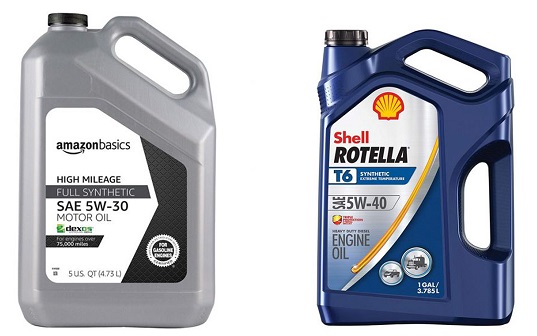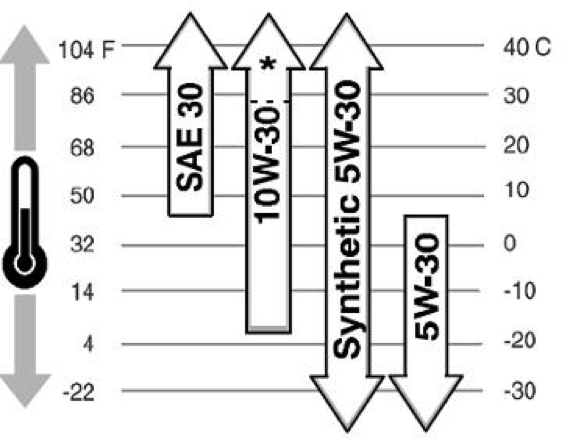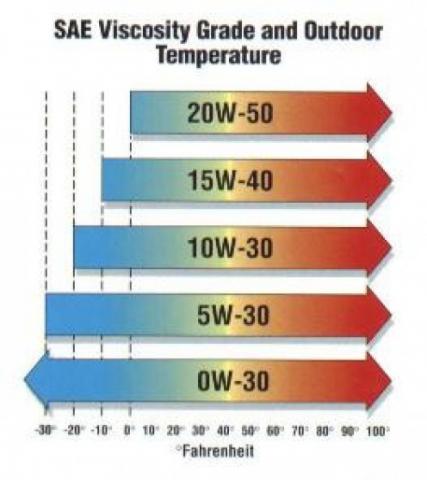When it comes to motor oil, the numbers on the bottle might feel like a secret code. But fear not, fellow car enthusiasts! Today, we’re diving into the nitty-gritty of 5w30 vs 5w40 motor oil and what they mean for your engine’s performance. If you’ve ever been perplexed about which oil to choose, you’re in the right place! This guide will break down everything you need to know, whether you’re a seasoned mechanic or just someone who wants their vehicle to run smoothly.

So, buckle up as we explore the differences, performance comparisons, and the best applications for each viscosity!
What Do the Numbers Mean?
Let’s start with the basics—what do those numbers really mean? The “5w” stands for the oil’s viscosity rating in winter, while the “30” or “40” indicates the oil’s viscosity at higher temperatures. In simple terms, 5w30 is designed to flow better in colder weather, making it ideal for winter driving. Meanwhile, 5w40 offers a thicker consistency at high temperatures, which is beneficial for hotter climates.
Quick Breakdown:
- 5w: Winter rating (both oils have the same winter performance)
- 30 vs 40: The second number reflects the oil’s thickness in high temperatures
Got it? Good! Now let’s dig deeper into how these differences affect your engine.

5w30 vs 5w40 Oil Performance Comparison
When it comes to 5w30 vs 5w40 oil performance, the differences really start to shine. Generally, 5w30 tends to be more fuel-efficient due to its lower viscosity at operating temperatures. This means better gas mileage, which is always a win in your book!
On the flip side, 5w40 is often favored for high-performance vehicles or those with turbocharged engines. The thicker oil provides better protection against wear and tear, especially under high-stress conditions. In fact, many car manufacturers recommend 5w40 for specific models due to its superior protective qualities.
Case Study:
Take, for example, a 2015 Audi A4. The manufacturer suggests using 5w40 for optimal performance, especially in regions where temperatures can soar. Drivers who stick to this recommendation often report fewer engine issues and better overall performance compared to those who opt for a lower viscosity.

Best Vehicle for 5w30 vs 5w40 Viscosity
Now, you might be wondering, “Which oil should I use for my vehicle?” Well, it depends on a few factors, including your car model, driving conditions, and climate.
Recommended Vehicles:
- 5w30: Ideal for most sedans, small SUVs, and everyday vehicles. If you drive a Toyota Camry or Honda Accord, you’re likely well-suited for 5w30.
- 5w40: Recommended for performance vehicles, trucks, and SUVs that require additional protection. Think of vehicles like the Ford F-150 or high-performance sports cars that thrive on thicker oil.
Pro Tip:
Always consult your owner’s manual for manufacturer recommendations. It’s like the holy grail of car maintenance advice!

When to Use 5w30 Instead of 5w40
So, when should you reach for 5w30 instead of 5w40? The answer lies in your driving habits and the climate you’re in. If you live in a colder region, 5w30 is your best friend during those frosty mornings. It flows better, ensuring your engine starts smoothly without the dreaded “cold start” issues.
Key Situations for 5w30:
- Cold Climates: If winter driving is part of your routine, 5w30 is the way to go. The thinner oil ensures better cold-weather performance.
- Fuel Efficiency: If you prioritize gas mileage over heavy-duty performance, lean towards 5w30. Your wallet will thank you!
5w30 vs 5w40 Oil for Winter Driving
Let’s face it—winter can be brutal on your vehicle. You need an oil that can handle those cold starts and keep your engine running smoothly. This is where 5w30 shines. Its lower viscosity at low temperatures means it flows easily, providing quick lubrication when you need it most.
Winter Driving Benefits of 5w30:
- Fast Flow: Ensures that your engine parts are lubricated quickly, reducing friction.
- Prevents Sludge: The thinner oil prevents the formation of sludge during cold starts, which can be a real engine killer.
Conversely, while 5w40 may offer better protection at high temperatures, it can be too thick for winter driving. It may not circulate as quickly, which could lead to increased wear during those chilly mornings.
Conclusion: The Final Verdict
Choosing between 5w30 and 5w40 motor oil doesn't have to be a daunting task. Remember, it all boils down to your vehicle type, driving conditions, and climate.
In summary:
- 5w30 is perfect for most everyday vehicles, especially in colder weather and for better fuel efficiency.
- 5w40 is the go-to for performance vehicles and those needing extra protection in hotter climates.
So, the next time you find yourself in the oil aisle, you’ll be armed with the knowledge to make an informed decision. Happy driving! And remember, keep that engine running smoothly—your car will thank you!
Ready to change your oil? Head to your garage, grab that wrench, and get to it!